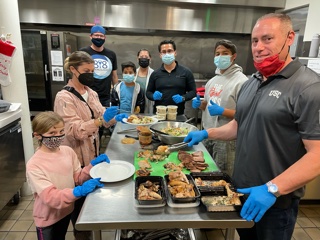How to Engage in Civic Engagement and Service Learning


Whether you are an educator or a student, there are many ways to engage in civic engagement and service learning. These activities can be as simple as volunteering at a local hospital or as involved as working on a community project for a nonprofit organization. There are also many programs like AmeriCorps that give students the chance to help out in their communities.
AmeriCorps
Whether you are an adult or a student, committing yourself to civic engagement and service learning can be a rewarding experience. In fact, the Bureau of Labor Statistics reports that 63.8 million Americans are engaged in volunteer work at any given time.
AmeriCorps is an organization dedicated to national service. It is funded by the Corporation for National and Community Service (CNCS) and aims to strengthen communities across the country. It provides full-time and part-time service opportunities. Its members work in urban and rural areas. It also provides opportunities for members to receive limited health benefits.
There are three main programs in the AmeriCorps network. These programs include AmeriCorps NCCC, AmeriCorps VISTA, and Students in Service. Some programs have specific skill requirements and are intended for certain demographics.
AmeriCorps members participate in activities related to education, conservation, and health. They also work to improve the environment and help revitalize the economy. Upon completion of their service, members receive an education award. They also receive a living stipend and limited health benefits.
University of Cincinnati
UC students have been involved in short-term and semester-long service projects and are engaged in learning and research activities that have led to new ideas, new ways of thinking, and new ways to help others. UC students have also explored issues of leadership and social justice. UC students have also engaged with local high school students.
In addition to short-term and semester-long service projects, students are also involved in projects that address real-world problems. In addition, students can participate in a year-long, paid internship or co-op position that gives them real-world experience. This program is called the Service-Learning Co-op Program.
Service-learning is a teaching methodology that integrates reflection with structured participation in community-based projects. It is a way of learning and teaching that engages students in a virtuous cycle of community service and classroom learning.
UC’s Service-Learning Co-op Program offers part-time and full-time positions that allow students to work with nonprofit organizations in the local community. The program is a part of Co-op 2.0, a program that allows students to participate in flexible, non-rotational co-ops.
Mount Holyoke College
Founded by Mary Lyon, Mount Holyoke College is a liberal arts college whose students come from more than 25 states and 25 countries. They are part of more than 100 clubs and organizations and are encouraged to take part in campus life to make connections with other students. They are also encouraged to make a difference.
The Community Based Learning (CBL) program at Mount Holyoke College links students with local organizations. These organizations provide students with hands-on experiences and mentoring opportunities. This program is a great way to expand your leadership skills.
The Weisman Center for Leadership provides internships and other opportunities for students to improve their communication skills. Students can also take part in the Speaking, Arguing, and Writing (SAW) program, which focuses on developing leadership and communication skills.
The Office of Civic Engagement and Service-Learning provides a range of programs that address a wide variety of issues. They include the Boltwood Project, which partners students with local organizations that work with developmentally challenged children. It also offers the Public Health Sciences Club, which raises public health awareness.
National Service Knowledge Network
Throughout the past decade, national service programs have become increasingly competitive and focused on community goal-setting. In this context, understanding the impact of engagement in service activities is essential.
In particular, national service programs can provide social and academic opportunities such as leadership training, financial resources, and opportunities for recruitment into civic life. In addition, national service can be a way to add college to one’s resume.
In addition to enhancing academic performance, service learning can also connect students to personal values, such as caring for others and taking responsibility. The National Service Knowledge Network for Civic Engagement and Service Learning (NSKN) provides resources and information on service learning and civic engagement.
In Wisconsin, the Wisconsin Institute for Civic Engagement promotes service learning and civic engagement in the state. The center works with local, regional, national, and international partners to address critical issues and challenges faced by the community.
The Center for Community Engagement (CCE) focuses on critical issues in the community, working with local, regional, national, and international organizations to identify systemic causes of social and/or environmental problems. In addition, CCE provides institutional vision and direction and serves as a campus hub for community engagement.

